Not long ago, the new generation of the three series is facing recalls worldwide. Although there are only 49 units on the domestic side, it has a great impact on the reputation of BMW and BMW Brilliance. (At the same time, some imported 730Li and Z4 were also recalled, for a total of 18 units)
Official statement on the reason for the recall:
The needle bearing outer ring of the engine balance shaft may not be properly pressed into the engine crankcase, and the bearing outer ring may come out of the crankcase during engine operation. This may cause the balance shaft to come loose and contact and interfere with the crankshaft, and cause damage to the engine crankshaft and / or cylinder block. If the engine is severely damaged, it may cause engine oil leakage. In the worst case, it cannot be ruled out that the flameout during driving will reduce the handling of the vehicle and pose a safety hazard.

In a recall document for the US market, the root cause was “the balance shaft was not produced to supplier standards.”
Combining the above news, according to the time and quantity of the recalled vehicles, and the recall of imported models, some media have inferred that the recalled three series are likely to be BMW Brilliance’s trial of imported engines. The factory doesn’t carry pots.
I have basically confirmed this statement through reliable sources.

As a matter of fact, as one of the most important production bases of domestic BMWs, the Tiexi plant is at the highest level for both competitors and other BMW plants worldwide. It is no exaggeration to say that The domestic technology is better than the imported version to a certain extent.
With the start of production of the short axis 3 series, Dong Chehui was again invited to BMW Shenyang Tiexi Factory, and once again observed this modern factory that injected industrial vitality into Shenyang.
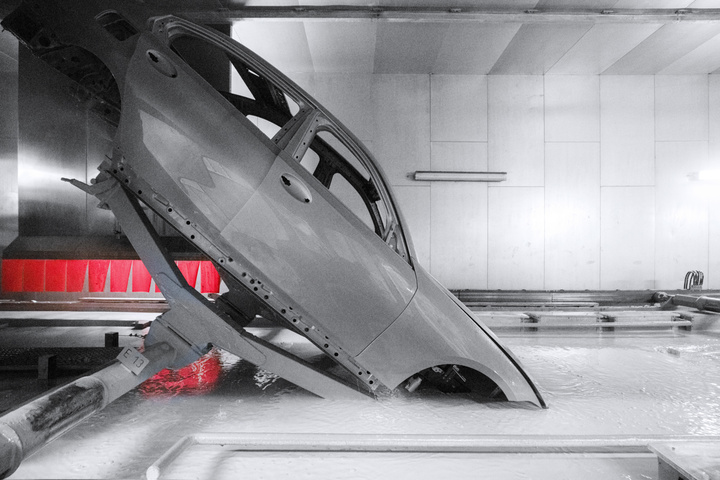
On the way from the airport to the hotel, Didi’s driver was facing me to the northeast industry, and the other side praised BMW Brilliance’s economic contribution to Shenyang. From the mouth of the locals, I can vaguely feel that the factory has gradually become the new spiritual totem of the city.
If you don’t know much about the concept of Industry 4.0, BMW Tiexi Factory may give you the answer. Interestingly, this is not only a factory, but also a national 4A-level scenic spot.
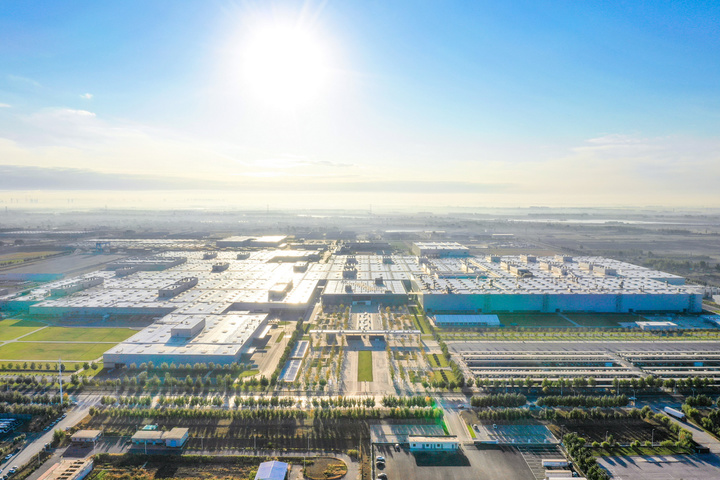
Looking at Baidu Encyclopedia’s definition of Industry 4.0, I have drawn a key point: the essence of Industry 4.0 is through data flow automation technology. The core feature is interconnection, which represents the intelligent production of “Internet + Manufacturing”, p>
Keywords: intelligent automation, interconnection. We might as well walk into the BMW Tiexi factory to find out the answer a little bit, and see if we can seat right.
First is visual recognition technology, which is widely used in painting workshops. Four highly intelligent robotic arms are equipped with high-power LED searchlights, high-reflection cameras, LED cameras, etc. to act as “smart eyes” to expand the “no-dead-angle” style of the newly painted bodyScanning and detection.
At this time, the staff next to the robot arm can obtain the vehicle body inspection report in real time through the computer screen. No matter which position is defective, the system will clearly indicate it. After the problem is found, the defective body can also be handed over to a paint arm to deal with it.
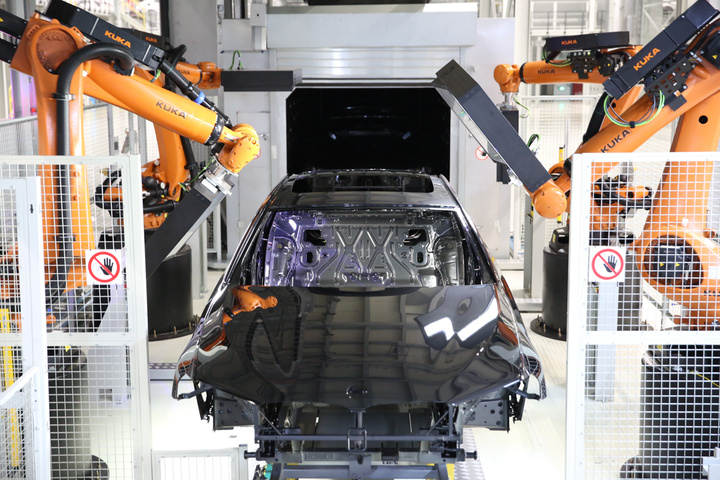
Not only painting, but also stamping. Taking the new 3 Series as an example, BMW Brilliance has introduced a new digital optical surface inspection equipment-ABIS. The device is driven by a 6-axis manipulator, enabling multi-angle optical sampling. After sampling, the system background will automatically compare the deviation between the actual and standard samples, and automatically judge the quality of the measurement part.
Compared with traditional manual testing, ABIS has greatly improved the testing efficiency. In the past, manual testing that required 20 minutes to complete can now take only 1 minute. At the same time, compared with the artificial subjective assessment, ABIS can objectively classify and evaluate surface defects, and more accurately and objectively identify the surface defects of measuring parts.
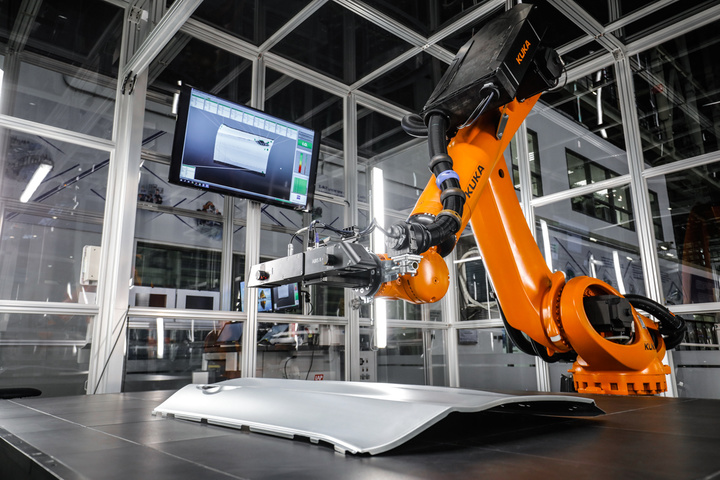
In addition to ensuring that the product is free of defects, how can you prevent the failure of machinery and equipment?
In the body shop, there are the most robots in the whole factory. Welding tasks are complicated. Once the machine stops, it will greatly affect the production efficiency of the entire factory, so how to prevent and repair in advance becomes very important.
This requires intelligent data acquisition and analysis technology, which can “personalize” each welding torch and perform preventive maintenance based on the historical data of the welding torch.

Not only that, the technology can also accurately predictWhen the welding torch needs maintenance and when the welding torch needs to be replaced, it is convenient for the factory to maintain the equipment during the production gap and reduce downtime. This can not only prevent defects in the products produced, but also ensure the efficient production.
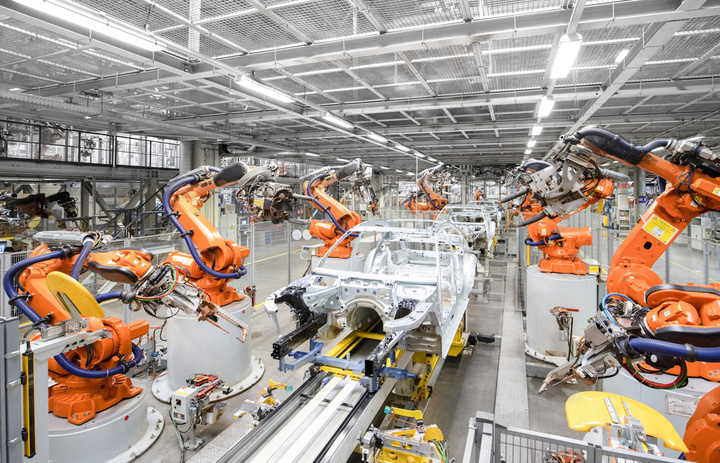
Industry 4.0 Although emphasis is placed on automation, the important role people play in production cannot be ignored. In the forest of machines, the ability of humans and computers to cooperate scientifically and comfortably is critical to production safety and productivity.
Because of the complex shape and location of parts, gluing has always been a headache, but with the human-machine collaborative gluing machine, gluing the radome has become easier. The operator only needs to put the part into the robot arm, and the device will automatically read the part information, and begin to apply glue after comparing with the background order number. In order to ensure the safety of workers, the equipment will suspend all work when the robot is subjected to external forces greater than 30 Nm.
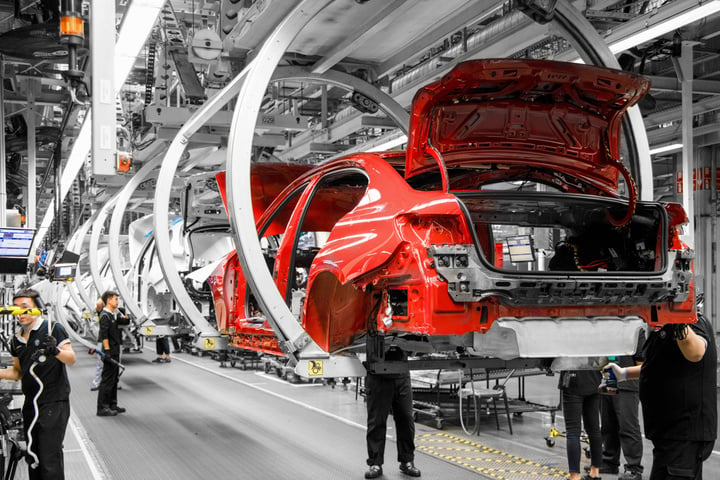
Similar intelligent technology has many applications in the Tiexi plant. At present, BMW Brilliance has set its sights on 5G, and the related technology is currently in the testing stage.
With 5G communication, ultra-low-latency, high-reliability wireless data transmission can be achieved between industrial cameras and robots. Robots can automatically and accurately place workpieces at designated locations under the guidance of vision functions to assist Workers share the increasingly heavy workload on the production line. Compared with traditional wired solutions, 5G frees industrial robots from the shackles of cables.
Without 5G, a traditional hard-wired production line usually has 2,000 main cables, and it only takes 6 months to install and deploy.
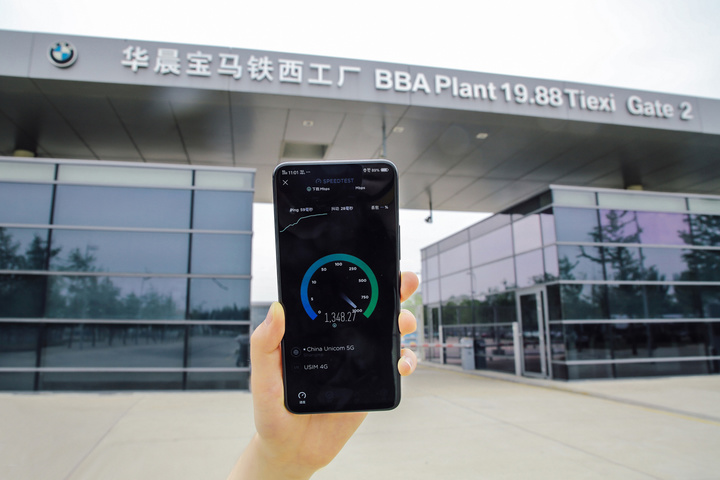
Building a car is a tedious job, with thousands of parts for a car. If any part has a problem, it will affect the experience in a small way and threaten the safety in a serious way. This requires manufacturers to assemble and inspect strictly. Take the cockpit center console as an example, there are about 50 independent parts in a square inch. Whether the various components are tightly coupled, whether the gap is even, and whether there are abnormal noises in the driving are very important indicators for a luxury car. Simply put, it’s quality.
The machine and manpower are combined to produce efficiently, leaving the defects in the factory. This is the Tiexi factory I saw.
